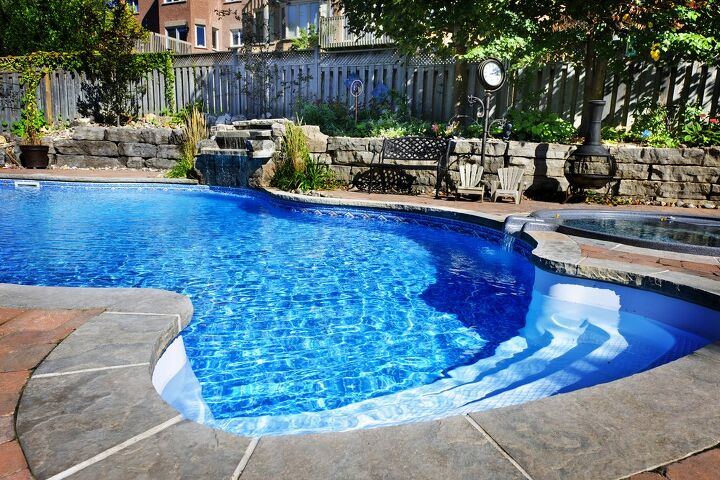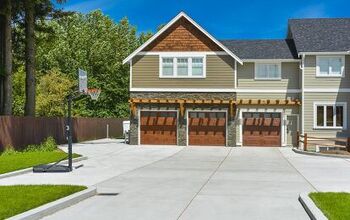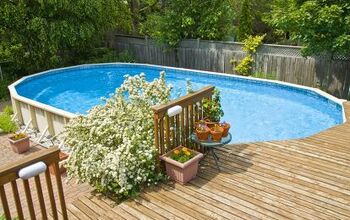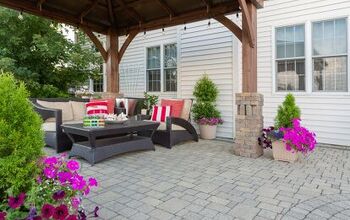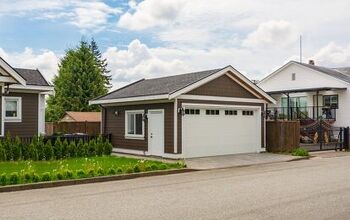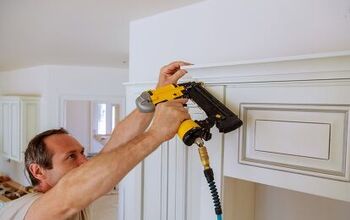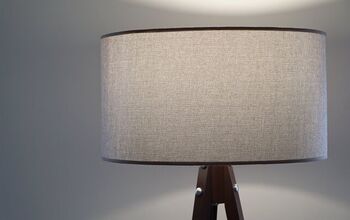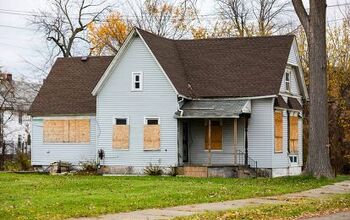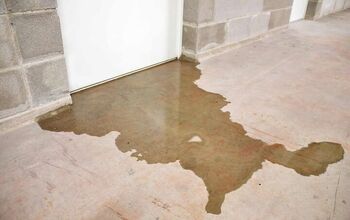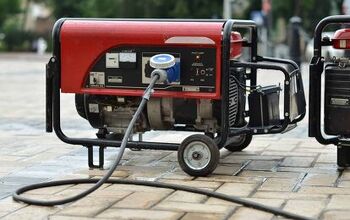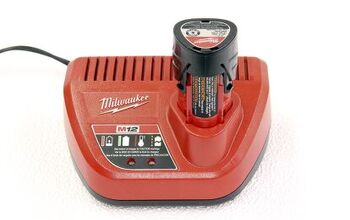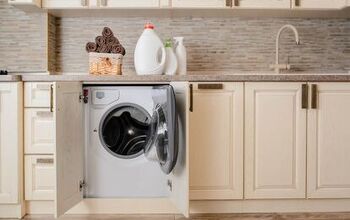Does An Inground Pool Increase Property Taxes?

Having an inground pool can be an awesome feeling, but will an inground pool increase property taxes? It is a question you have to ask yourself anytime you make home improvements. With this informational guide, you will have that answer.
An inground pool will increase your property taxes because it also increases your home’s value. When you add an in-ground pool, you will likely need a reassessment of your home’s value, leading to an increase in your property tax bill. You will also pay higher homeowner’s insurance premiums when you have an inground pool.
Below, we will get into some details about how taxes and property values compare with each other. Plus, you can compare an in-ground pool to an above-ground pool and how it affects your home’s value.
Do You a Need Pool, Spa, or Hot Tub Contractor?
Get free, zero-commitment quotes from pro contractors near you.

How Does Property Value Affect Property Taxes?
Before discussing how an inground pool will specifically affect property taxes, it is essential to understand how value and taxes compare. Property value comes from a variety of factors. As you may expect, the more and higher-quality structures you have on the property, the higher the cost goes up.
The opposite is also true: a vacant piece of land is less likely to have a high value. The higher your property value, the higher your taxes will be. Your property tax rate varies depending on where you live. Property tax rates are otherwise known as mill levies. Check with your local government officials to see your mill levy.
Your property value is typically determined based on a professional assessment. This value comes from a combination of three areas:
- Replacement cost
- Neighborhood comparison
- Rental value
Replacement Cost
This is the cost needed to build your home from the ground up. It is the value that should be closest to your homeowner’s insurance. It also includes external structures, such as an inground pool.
Neighborhood Comparison
This will compare the value of your home to others in the same area. It standardizes the cost based on available amenities, quality of the neighborhood, and the quality of your house by comparison to others. If multiple pools are in your area, this assessment may not affect you as much.
Rental Value
Last, your home’s rental value estimates how much income you could make on your home if you rent it out. This valuation method only occurs if you rent out your home. If you have a pool while others do not, you could feasibly increase your rental value.
For further information, we have a guide that specializes in how home improvements increase property taxes. If you consider the outside of your home to be a piece of potential home improvement, the same logic applies.
How Does An Inground Pool Increase Property Taxes?
When deciding upon which is the best for you, select based on your yearly budget.
With this in mind, your first step will be to discover the tax rate of your location. Again, check with your local government officials to determine that information. Calling out to a courthouse is sufficient.
Let’s assume that your mill levy is 5%, and your assessment rate is 10%. The assessment done put your new house value at $400,000. Assume that your house’s value was $385,000 before the new pool.
An assessment rate means the taxable amount of your house is $40,000. Applying the mill levy to this and your home’s taxable amount means you will now be paying $2,000.
Imagine adding an inground pool to that, increasing your home’s value to $410,000, which increases your tax payout to $2,050. Expand that extra $50 over the next ten years, and you are paying an additional $500, excluding any changes in home value.
Compare that to what you were paying: $1,925 if you decided to get an above-ground pool. So $750 over ten years.
Ask yourself if you can afford this amount over the long term. If you cannot, stick to things that will not increase your property value.
How Does An Above Ground Pool Compare To An Inground Pool?
At this point, it would be fair to ask how above-ground pools compare to inground pools. Going back to the home improvements analogy, it all comes back to the structure’s permanence.
An above-ground pool is a plastic structure that can be inflated, deflated, and relocated to another house easily. As a result, you cannot expect it to increase your property value, as you can pack it up and take it away at any time.
Inground pools are on the other side of this argument. You need to excavate a hole in the ground and go through an extensive process to have this. You would need a significant amount of effort to remove an inground pool, therefore increasing this structure’s longevity.
Also, inground pools are an item of luxury. Dropping $25,000 to $40,000 on any project is intense, meaning you have money to save on this one.
In many cases, pools improve the beauty of your home. A plastic tube in the back of your home is a fun deal, but it isn’t a permanent structure known to improve your home’s quality.
Does Purchasing An Above Ground Pool Increase Property Value?
No, an above-ground pool is not a permanent structure. Buying a plastic swimming pool and leaving it behind for the next person might be a nice gesture, but only if they want to keep that pool.
If you wish to use it to increase your home’s value, you will not have any luck. It might cause you to lose the sale altogether.
Do Semi-Inground Pools Raise Taxes?
If you are searching for a pool, another option you might have considered is a semi inground pool. Our earlier examples show that it is easy to see that your home’s permanent, beautiful pieces will raise your property value. As a result, a semi inground will raise property taxes.
In many cases, semi inground pools are more expensive than inground pools. It is because the labor behind erecting walls to contain water is much greater than filling a hole.
Do You a Need Pool, Spa, or Hot Tub Contractor?
Get free, zero-commitment quotes from pro contractors near you.

Related Questions
Should you buy a home with an inground pool?
If you are in the market for buying a house, a pre-existing pool is a neat way to reduce labor. However, it may not be the best option depending on your available time and energy.First, as someone who didn’t build the pool, you have no idea about the level of effort behind the swimming pool. Check if the structure has a permit behind it, which standardizes it for certain building practices.Next, ask yourself if you have the time and effort to manage to pool. If that doesn’t work, move on to ask if you can afford to hire someone to maintain it. Maintaining a pool can take a great deal of effort.Finally, ask yourself how much you like to swim. Because the pool will be primarily for you and your family, it doesn’t make sense to own one if you guys prefer public pools or don’t swim a lot.
Does an inground pool increase homeowner’s insurance?
Looking at your homeowner’s contract, you will likely see a reference to other structures coverage. Other structures coverage is otherwise known as coverage B and includes external structures like inground or semi-inground pools.In many insurance contracts, it is up to you to report on the pool. Failure to do so will result In it not being covered. So if you want to protect your swimming pool adequately, you will have to assess it as a part of your coverage b. If you feel undercovered, increasing it will likely increase your homeowner’s insurance.In some cases, some companies will also suggest increasing your liability coverage. Insurance agents recommend this for two reasons:
- You have a higher home value.
- There is a higher likelihood of someone hurting themselves in your backyard.
In determining your liability coverage, they should be strong enough to cover your total combined assets. So if you have a $300,000 house and two $20,000 cars, it might be time to think about protecting your assets at a minimum of $320,000, which may mean $500 thousand worth of coverage.

I'm a guy who becomes the expert of whatever I stumble upon, writing-wise. I've written tons about cool home products, home improvement, and smart technology in the home. I'm also the proud father of a kiddo born on new years, making my holidays very busy.
More by Eli Smith



